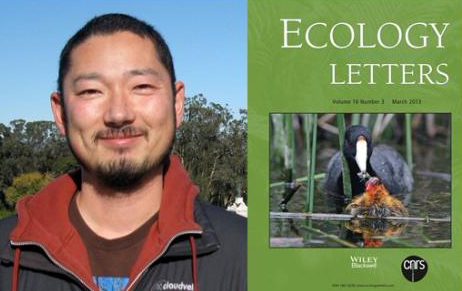
How parents distribute food among offspring has a big effect on survival, and thus parental reproductive success. But it's not immediately clear how best to distribute food within a family, especially when the offspring are different ages with varied demands and compete between each other.
In the March cover article of Ecology Letters' paper edition, Daizaburo Shizuka, a research assistant professor in biological sciences, reports a discovery on how American coots distribute food among offspring by using aggression and favoritism to control which chicks get fed.
Shizuka said the discovery has important implications for understanding the evolution of life history strategies — the way individuals allocate energy and effort to maximize fitness.
Shizuka and his colleagues tagged hundreds of coot chicks and observed how coot parents feed their broods.
“What we found is that American coots parents can flexibly change the way they distribute food: they can begin by feeding the more advantaged offspring, but then switch to favoring the disadvantaged offspring”. Shizuka said, “This type of flexibility or mixed-strategy might allow parents to raise the maximum number of good-condition offspring.”
Shizuka’s lab specializes in research on ecology and evolution social interactions.
Bruce E. Lyon, University of California, Santa Cruz, is a co-author on the article.
The research is supported by grants from the National Sciences Foundation, the National Geographic Society, the Chapman Fund, and the Sigma Xi Society.
The publication is available at http://go.unl.edu/j3r.
— Agnes Yunyi Wu, Biological Sciences